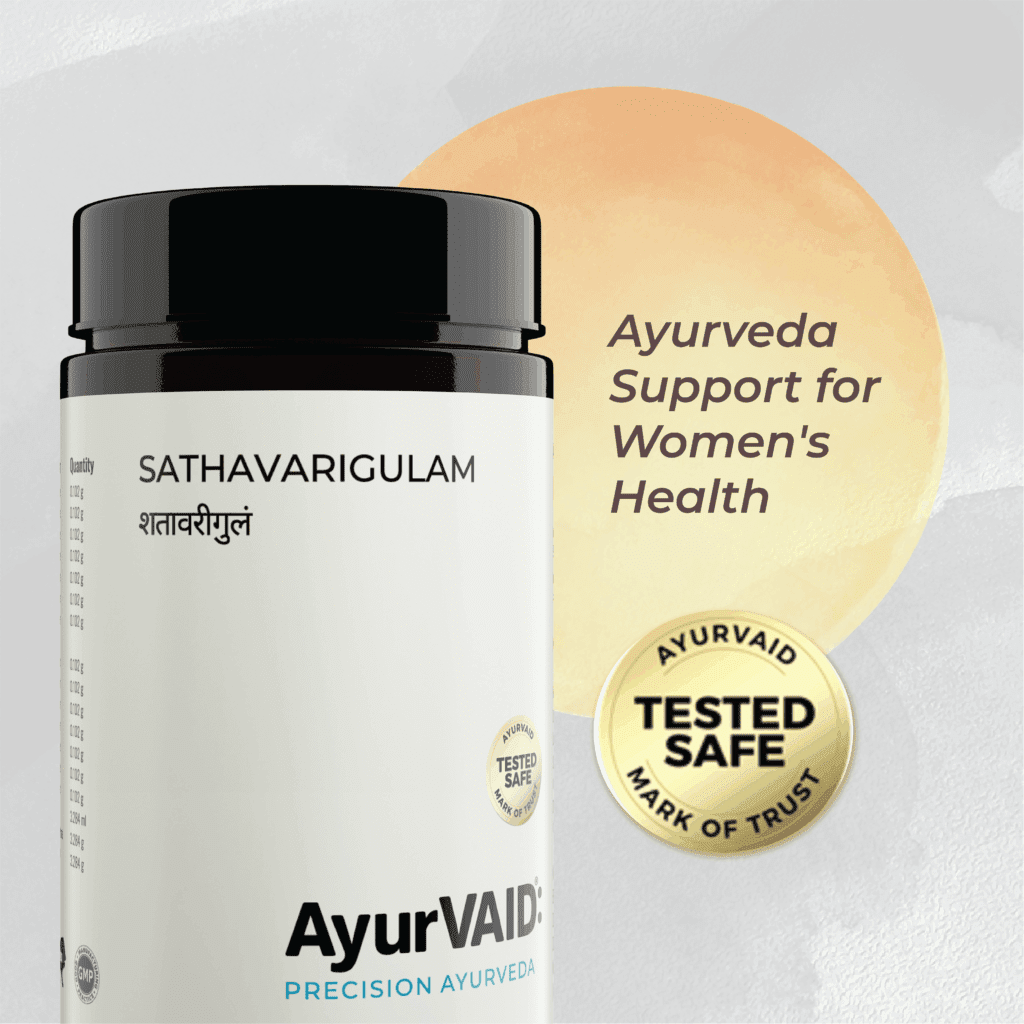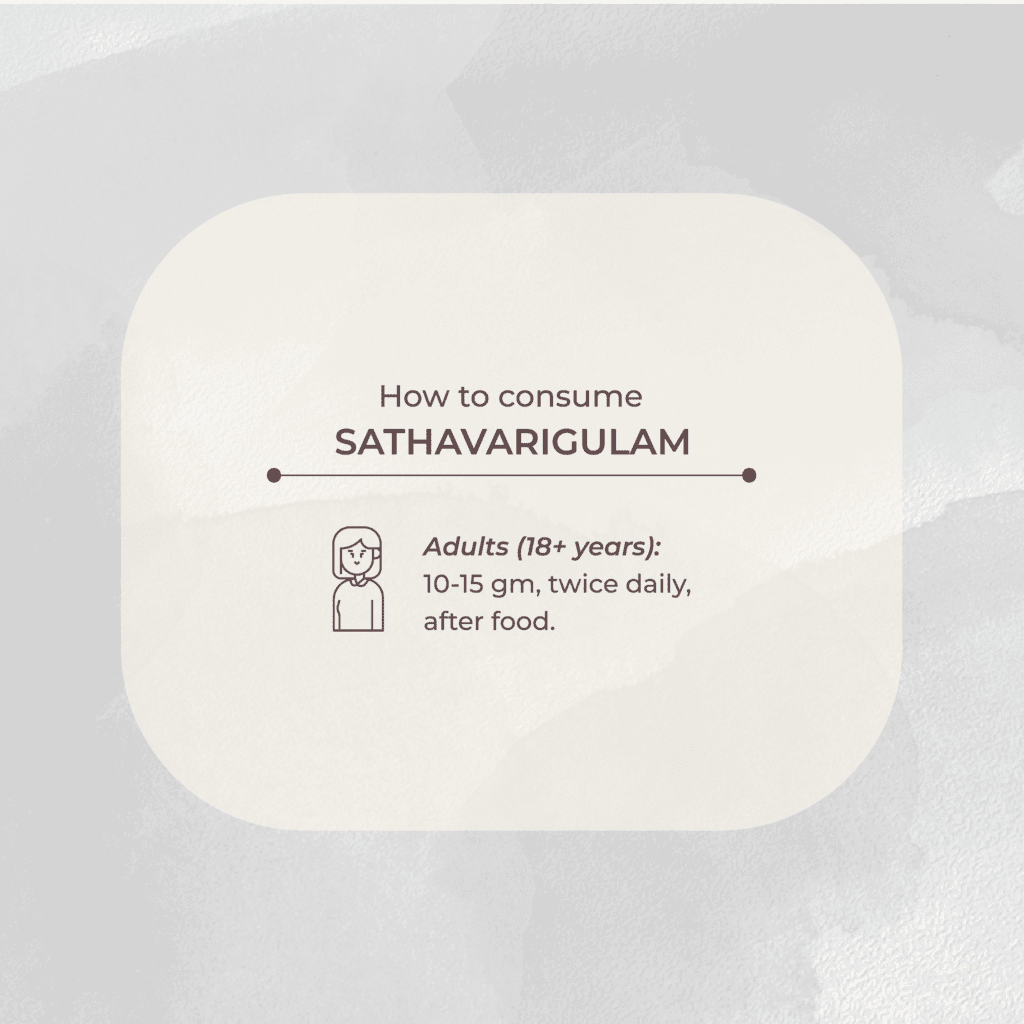Introduction
Being a woman is a beautiful journey, yet it is not always easy. With work, family, and personal obligations, it is very easy to become tired, nervous, or unbalanced. That is where Ayurveda can provide gentle, yet efficient help. Herbs like Shatavari have always been a popular companion in women’s health. Called the Queen of Herbs, Shatavari benefits for women are well-known in Ayurveda, not only as a medicine but also as a companion for a healthy, stable, and well-nourished body.
Shatavari plays a vital role at various points in a woman’s life during their menstruation period, while trying to conceive and after giving birth. Some resort to it when they are in their menopause, and hormonal changes may appear overwhelming. What is special about Shatavari is its adaptability. It is mild and gentle to the body and assists in restoring balance.
What is Shatavari?
Shatavari (Asparagus racemosus) is a climbing plant from the lily family that has been used in Ayurveda for thousands of years. The term Shatavari means “she who has a hundred husbands,” referenced in relation to the benefits of shatavari for female vitality and fertility.
Shatavari is referred to as a rasayana, meaning a rejuvenating tonic that provides nourishment and relaxation to the body and mind. The root is the most used part of the plant, which is normally either dried and powdered or made into various formulations. While anyone can enjoy its cooling, balancing properties, Shatavari for women is particularly sought out for supporting hormonal balance and the menstrual cycle while providing reproductive health benefits during all stages of life, from menarche through post-menopause.
Shatavari for Women’s Health
In women, Shatavari uses are not only limited to physical wellness, but also extend to emotional wellness by bringing about a balance of hormones.
Ayurveda has recognised Shatavari as one of its go-to herbs for women’s health. It is a gentle adaptogen, providing support for the body during times of stress, while nourishing the reproductive system. Throughout their lives, women use Shatavari to support their hormonal health, relaxation after childbirth, and embrace the menopausal transition. Additionally, its cooling effects ease the urinary tract and promote vitality.
Benefits of Shatavari for Women
Shatavari benefits for women’s health extend beyond reproductive support. Benefits include:
- Hormonal balance: Assisting in regulating menstrual cycles and relieving PMS symptoms.
- Fertility and Pregnancy: To strengthen the uterus & prepare for healthy ovulation.
- Postpartum care and lactation: Traditionally, it is indicated for recovery and to increase milk supply after childbirth.
- Urinary health: Naturally soothing the urinary tract without irritation.
General vitality: Enhancing immunity and energy and keeping the body nourished.
Common Shatavari Uses for Female
Practical shatavari uses for female health are simple to incorporate:
- Powder or capsules: Either mixed in warm milk with honey or in warm water
- Lehyams: Traditional formulations like AyurVAID Sathavarigulam, which includes Shatavari mixed with potent herbs for menstrual and urinary support.
- Decoctions: Mixed with other herbs to enhance properties.
Consistency is key. There is a slight positive effect of taking them in the short term, but it takes a habitual and conscious approach to maximise the impact, under the guidance of an Ayurveda doctor. It is all about paying attention to your body, being able to recognise the slightest changes, and taking care of it in the most gentle way.
AyurVAID’s Shatavari-Based Formulations for Women’s Health
Shatavari stands out for its nourishing and balancing properties among the herbs traditionally valued for women’s health. It promotes hormonal wellness, builds the uterus, assists with lactation, and helps the body cope with various stages of life. AyurVAID uses Shatavari in several of its Tested Safe products, combining traditional knowledge of safety with current safety standards. All AyurVAID products are tested for purity and quality to meet API safety standards of heavy metals, aflatoxins, and microbial safety.
- AyurVAID Sathavarigulam It is a classical Ayurveda medicine that is prescribed in the treatment of menstrual abnormalities, UTI, and undernutrition. With Shatavari (Asparagus racemosus), Jeera (Cuminum cyminum), and Ghee, the preparation is known to promote the female reproductive system, reinforce the uterus, as well as restore physical power and lactation of new mothers. Its gentle, nourishing properties make it suitable for women at every stage of life, supporting reproductive wellness, urinary health, and overall vitality.


- AyurVAID Dhanwantharam Thailam Dhanwantharam Thailam is a traditional Abhyanga oil that combines Shatavari, Bala, Ashwagandha, Amla, Bilva, and cow’s milk in sesame oil. Abhyanga with Dhanwantharam Thailam helps strengthen muscles, joints, and nerves, alleviates stiffness and discomfort, and improves circulation. It is particularly valuable during the pregnancy and postpartum recovery phase by toning the abdomen, firming the uterus, and keeping the skin supple. Dhanwantharam Thailam has therapeutic properties combined with a soothing and restorative experience, making it a perfect addition to your daily practice of self-care.

- AyurVAID Varanadi Kashayam Varanadi Kashayam helps the body absorb nutrients, supports a healthy weight, and reduces bloating, especially during the menstrual cycle and pregnancy. It can also reduce discomfort in a minor headache, improve healing following mild inflammation, and is a versatile medicine for managing women’s health challenges.

- AyurVAID Murivenna Murivenna is a classical herbal oil designed for external application to support musculoskeletal recovery. Combining Shatavari with herbs that have anti-inflammatory and restorative properties can help alleviate muscle and joint pain, tenderness, and swelling, and facilitate a faster recovery from mild sprains or strains. It is especially useful for active women or in the postpartum period, providing effective support for their everyday well-being.

Together, these AyurVAID formulations leverage the benefits of Shatavari to provide holistic, life-stage-specific support for women’s health. With the assurance of Tested Safe quality, women can incorporate these products into their routines with confidence, ensuring both efficacy and safety in their daily self-care..
Is Shatavari Safe? Who Should Avoid It?
Shatavari is a mild and cooling herb, and women often find it well-accepted even if taken long-term. But, like any herb, it is not appropriate for everyone.
- Allergies or sensitivities – If you are allergic to the asparagus family, you should avoid it to avoid allergic reactions.
- Hormone-sensitive conditions – Because Shatavari can influence estrogen levels, women with hormone-related cancers, endometriosis, or uterine fibroids should consult their doctor first.
- Diabetes or low blood pressure – Shatavari may lower blood sugar and blood pressure slightly. Those on medications that lower blood sugar or blood pressure should monitor this and consult their healthcare professional.
- Pregnancy & breastfeeding – Though Shatavari is often recommended postnatally for lactation, it is best to use it only with professional recommendation while pregnant or breastfeeding.






